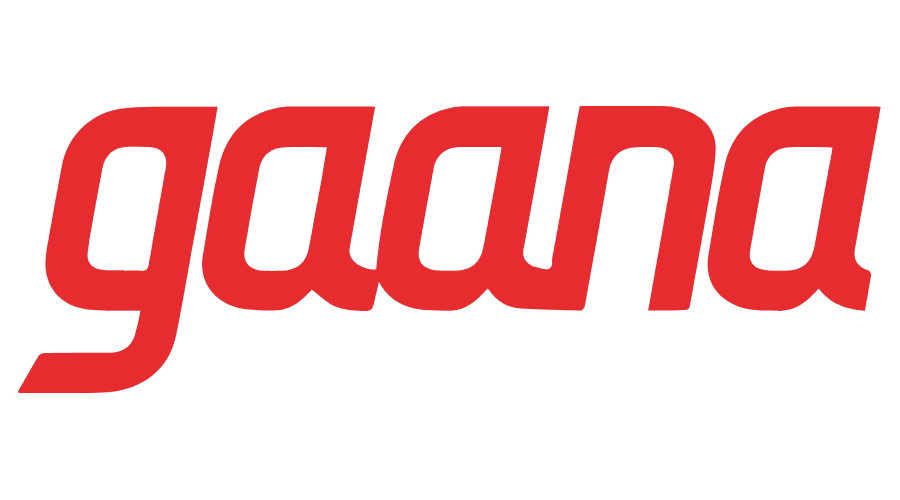Infusing Humanity into AI Adoption
with Damian Nomura
The Business Simplicity Podcast hosted by Chris Parker
Episode #219 published on 8 July 2025
This episode explores the often-overlooked human dimensions of AI adoption. Chris Parker speaks with Damian Nomura, founder of Mundane AI, about what it really takes for companies to meaningfully integrate artificial intelligence. From leadership mindsets to practical experiments, this conversation connects the dots between strategy, culture, and emotional intelligence.
Damian shares his journey from working as a waiter to becoming an international expert in AI adoption. His experience offers a grounded perspective on how everyday observations and process insights can lead to innovative transformation. He now works with companies to uplift their AI maturity, blending technical awareness with human connection.
Listeners will walk away with a deeper understanding of what it means to upskill for AI, not just technically but emotionally and strategically. Damian explains how mindfulness, resilience, and curiosity are essential tools for leaders navigating AI shifts. This is especially relevant now, as organizations wrestle with the speed and overwhelm of generative AI.
The conversation resonates deeply with leaders who are navigating complexity and seeking more conscious ways to engage with change. It reflects the need for structured simplicity and emotional presence in transformation efforts, echoing Ebullient’s belief that clarity, rhythm, and co-creation unlock sustainable momentum.
Resources mentioned:
- Book: “Gary’s Smart World” by Gary Vaynerchuk
- Calm App (for mindfulness): https://www.calm.com
About the Guest
Damian Nomura is the founder of Mundane AI, an AI adoption agency based in Switzerland. He works globally with businesses to build AI fluency, run strategy-aligned hackathons, and guide cultural integration of new technologies. With a background spanning hospitality and corporate IT leadership, Damian brings an intuitive understanding of systems, human behaviour, and what it takes to build competence in the age of automation. He was invited to the show for his rare ability to bridge tech and humanity with simplicity and depth.
Contact Details
- Linkedin: https://www.linkedin.com/in/damian-nomura/
- Website: https://mundaine.ai/
Key Discussion Points
- What holds most organizations back from adopting AI meaningfully?: Legacy gaps in processes, poor data hygiene, and a lack of internal collaboration.
- What is the role of self-awareness in prompt engineering?: Knowing what you truly want is essential to asking better questions and getting better results.
- How does Damian integrate mindfulness into AI strategy work?: Step by step, based on readiness; including breathwork, visualization, and space for inner awareness.
- What’s the biggest cultural impact of AI adoption programs?: The shift from fear and confusion to co-creation and empowered learning across levels.
- Why do hackathons matter in the adoption journey?: They compress learning and spark collaboration across unexpected combinations of people.
- Should companies build or buy AI solutions?: They should build their internal competence first, so they can make informed, context-aware decisions.
- What three things can leaders do to get started with AI?: Use it themselves, encourage dialogue, and create safe space to play and experiment.
Transcript
Chris Parker: Hello this is Chris Parker and I had a conversation with Damian Nomura from Mundane AI and he is a founder and he’s running an AI adoption agency based out of Switzerland working with businesses who are starting and on the journey of infusing AI into their work into their culture into their strategy and we talked about the whole spectrum of AI adoption and implementation so hey Damian why would it be really valuable for people to listen to this?
Damian Nomura: Why would it be valuable is because we are humans and we are companies and we’re interacting with AI and there is a missing relationship between the two and what you’re learning is on how to build this relationship and also on how to start because we all need to start somewhere and many of us don’t know where to so here you might find some clues.
Chris Parker: The Business Simplicity podcast where we learn about strategies and tactics to succeed through simplicity with your host Chris Parker. Welcome back to the Business Simplicity podcast this is Chris Parker and I’m talking to a fascinating individual Damian Nomura who runs Mundane AI and that’s mundane.ai so there’s an AI in the mundane as well I’m not sure if it’s normally spelled that way but I really see it when I’m looking at it and Damian and I are members of the Gen AI circle it’s a community of AI thinkers doers strategists we’re kind of surfing this wave really at the bleeding edge sometimes on what’s possible and how things are changing on a minute-by-minute basis and Damian is working with organizations basically to uplift their AI awareness and running hackathons and essentially helping humans people in organizations adopt AI for I guess the power of the positive and so we’re going to unpack a lot of that and I’m just so excited and thankful appreciative of Damian for joining so Damian welcome maybe if you can kick us And I’m gonna plant a seed with you I know the story about you leading from working as a waiter coming all the way up into being this like international AI adoption expert so maybe introduce yourself by telling a little bit of that origin story which I thought was just marvelous.
Damian Nomura: Yeah thank you very much Chris. I just recently heard this quote and I think this reflects it perfectly AI leads us directly to results in the times of today we just have to drop in a prompt and we get the result immediately so what we’re missing on is the path between the start and the finish line and sometimes the path doesn’t matter because sometimes we just need the results and sometimes the path does matter and knowing the difference makes a difference and I think this reflects perfectly well on my path of coming from a waiter to CIO and owning my own international AI adoption agency so I think it’s important to understand that we all are humans we all have our pathways and in the times of today where so much is artificial it is super important to remember what we as humans are because this is what differentiates us from AI and from the machines and sometimes we still have to walk our paths to actually be different than the machines and not being replaced but actually being able to evolve into a new space into a space that actually serves us as humans as well and not that we end up serving the machines.
Chris Parker: And by path the path to the prompt path to the answer what do you mean by path in the concept of AI?
Damian Nomura: So I just as a matter of fact I just had this last night I was working on a prototype for an automation and I usually do it quite manually first so I used Claude and I prompted Claude directly and the results were so good so I was like okay proof of concept is here now I’m building the automation behind it I went into Make and I pulled in all those elements and I realized that for example web search wasn’t in there included so the results obviously were much worse than what I had in Claude and also the system prompts were not in there are not there if you’re just using the API directly so the quality was less and I realized okay what can I do I went into research and I could have done a custom API call now I’m not a developer myself really tried to avoid writing code myself and so I went back to using Claude and I realized this is in terms of AI this is exactly the journey that I’m missing out on now and I don’t even know how to get to the results that Claude like the application Claude is delivering me so I’m having holes here and I do not develop myself so I went back to actually learning on how to do the API call properly and then handle all the data salad you get back.
Chris Parker: Yeah no I think the way I describe that sometimes is because the answers are there and I and I think this has a and I’m not I’m still going to go back to the waiter question and pick that apart a little bit but with LLMs and Gen AI and Agentic frameworks the results can be there and then the way I simplify it maybe oversimplify it is what is the question. It’s like how can you refine the question and that could be a very simple thing like okay how do you ask the right prompt or how do you create the whole prompt chain and how do you prepare the data and how do you optimize and refine that and I think this is going this is something that’s fundamental that’s going to shift the power dynamics in organizations because in the past managers were the authoritative answer provider and now the answers are there the answers are commoditized they’re democratized the answers are better answers can come from just the machine and so the actual wisdom is to be asking the right question and maybe that’s another way of actually preparing the right path. Do you how do you see that meaning what is the impact of path in an organization?
Damian Nomura: Yeah I love that I mean I’ve been through various positions in my life and I kept seeing that the question is being overlooked and left behind the problem is being overlooked and left behind and that usually has to do that the subject matter experts didn’t have enough volume to speak up meaning it usually was driven by the management what projects we’re tackling and what the problem is or maybe not even caring about the problem itself I could put it that way. I keep saying using AI properly and this is an amazing opportunity for us as humanity. I have this idea of the better human you are the better AI user you will be and what do I mean by that just think about prompting and prompt engineering. When you don’t when you’re not aware of the problem when you’re not aware of what you actually want then you’ll just prompt anything and I mean I did that as well and I keep doing that as well I’m just dropping in any random prompts and I just realized okay that wasn’t really good as the results are mediocre and for many the results already look stunning but they are mediocre if you know what it could do if you properly prompt engineer and properly prompt engineering means I need to know what I want and I need to structure it in a structured way so what do I need for that as skills I need self-reflection right I need to reflect on myself what do I really want to know because so often I think I know what I want but that’s not what I really want right and so I need to reflect on myself what do I really want and then break it down into chunks and steps of what I want the AI to do so and being self-reflective how do I get to that skill is by actually reflecting myself in my everyday life and what I’m doing and what I’m acting towards my partner my friends my children my parents whoever right so that’s one part and the other part is also that is huge is resilience there’s so much coming up every single second right there’s so many new companies popping out like mushrooms and it’s also to me it’s overwhelming and to all of us it is overwhelming whoever says it’s not overwhelming is just simply lying or ignoring or their eyes are closed exactly exactly yeah so resilience is a huge skill in the times of today because the ability to bounce back quickly and go from overwhelm to okay but now what’s possible what is it really and what’s possible with it and what can we do what can we build what can we create this is where the true power lies and how do you get to being resilient is I mean one of the best ways I know is everything around mindfulness right and so mindfulness is also leading you to your inner self to your inner child connecting with everything around you living in the moment we all know the philosophies around that which eventually will make you a better human because you will interact differently with other humans you will not be so problem focused but more solution focused.
Chris Parker: Well that one thought and then I’ll get into the mindfulness is a lot of I’m kind of interpreting a lot of initiatives projects there’s a quote that like 70 or 90% of projects fail in enterprises McKinsey Harvard Business Review something I think most of those projects should never have happened because it’s typically they shouldn’t have started don’t talk about the failing talk about the starting just don’t start because most of it’s ego-based it’s from a manager or an executive who doesn’t understand what the actual problem is they’re probably not very empathetic they’re probably not they’re starting these things for the wrong reason and then maybe a lot of these things shouldn’t happen so maybe it’s the immune system of the organization working in a positive way in preventing these these kind of changes but one thing I just want to grab onto that mindfulness meditation calm I find as a survival tactic now with so much overwhelm going on so this is something that really resonates with me is this part of your work when you’re working AI adoption are you having mindful I hope you are because you’re doing these hackathons do you start with a moment of zen and reflection before you start hacking away is like how do you bring these things together?
Damian Nomura: Yeah so one of my principles is AI is so powerful and whatever is coming I mean talking about AI agents talking about quantum computing as well I mean I don’t even want to go there we need all our resources available and I mean really all and we can’t be caught up in things that used to be deemed unprofessional or something like and I’m talking about for example mindfulness practices breath work meditation visualizations as well and so we need all of our resources available and that’s why I’m including this as well also I am very aware that you can’t just jump in and bring this in like that you need to go step by step really and see also how ready the company culture is for that but I mean I keep coming back to the term common sense and it is common sense that we need all of our resources available and there are so many studies out there that prove that we are much more resourceful when we go into mindfulness and do diligence there and so I would say it’s not just like a cookie cutter process I’m doing there I really Yeah I need to see how aware they are already but at some point they will realize that they have to deal with the overwhelm and to me this is these are the tools to use.
Chris Parker: Yeah just to and do you guide these mindfulness I’ll just what’s on my mind is I’ll plug someone else sorry we’re in it but Charlotte Mater who’s she lives in Annecy she’s a leadership coach and mindfulness instructor and I’ve been involved in just a couple weeks ago we were down in Saffron massive French company and she ran a mindfulness session with like 20 well middle managers and the impact was great I think it was really and I believe that Yeah let’s call it the management science culture that we live in is starting to open up to these things to realize that hey we are actually complete humans let’s focus on the inner work as well as the intellectual work and no that’s cool.
Damian Nomura: Yeah that’s breaking through more and more there’s also this elite executive like young executive network where I can see they do a lot of mindfulness treatments as well and I think the new leaders are actually picking up to that but you’re not only having new leaders and startup companies you’re working with you also have established companies where there’s different mindset and you need to get in step by step still I mean from professional sports we know it and from high performant athletes we know visualization techniques and this is nothing more than mindfulness really where you visualize where you’re actually the fastest lightning bolt on a sprint or or whatever it is or in a team or all those huddle moments in football or wherever or I mean this is where you bring yourself up to a high into a high performance state.
Chris Parker: Well when I was competitive rower in university back in California and that was a while ago but even then they knew that the visualization of a race can repeatedly had equal or better performance enhancements than the actual practice I think it’s because you can all you could all you could imagine was you could imagine the adrenaline the intensity of a race more than you could practice because you’re just out there in the water and having a boat next to you that’s a couple strokes ahead is a completely different experience than you just kind of paddling along so it’s but taking reality to AI you just got to tell this this waiter story and how it brought you through to automation and to AI.
Damian Nomura: Sure well I have a little story myself first is when I was involved in 2011 12 in producing the feature film The Right Juice in Portugal I was a first-time producer with a very experienced team and so it was basically in the way a lot I was focusing on commercial stuff but a lot of the people work and creating a calm in this very hectic space but one of the things I learned there was never come back empty-handed and it resonates with your story because what because I was there and I didn’t have like a role in the shoot and they needed stuff hey Chris can you go get that and then I would get like a production assistant or something who’s from Portugal and say “Okay we need this.” And what we clearly if even if we couldn’t find that come back with something that would be close enough so then the team could continue so even if we don’t solve the exact problem you got to come back with something to move forward but over to the life in a restaurant.
Chris Parker: Yeah so I was barkeeper waiter and catering employee for about five years and we had I mean you’re making miles right you’re walking walking walking you just have to imagine you walk so many miles every single day so your feet are your direct feedback and in this particular restaurant where I work we had those salt and pepper grinders on the table and it was protocol that once the dinner or lunch was done you have to collect them and bring them back and if you would have just collected all the plates and come back and you realize you left them behind then you would have to walk empty-handed back to the table and bring them back so and you have the feedback in your feet in the very same evening that this was not a good idea so you had to come up with strategies on how to be as efficient as possible while still remaining some kind of elegance I mean you can’t just pile everything on top so in this I never realized that this was an essential skill for me until the point where I started in process engineering and I realized when designing the processes this is exactly what I was doing in the restaurant because you have to think about what makes the most sense and where what you pick up from where I mean processes are nothing more than input and then a task task task task task and then you have the output so on a more wider angle that’s exactly the same thing as I was doing in the restaurant so it’s exactly that skill and I also realized that many of my colleagues or all of my colleagues didn’t have that skill developed in that way because they never went from the ground up because they just went to university studied and then just entered the business and then they’re trying to understand what the people in the business are really doing or actually they have to make sure that they just keep their positions because that’s in the management game right so yeah I learned that this path and here we’re back to the path right walking the path or going my journey has helped me so much in filling all those gaps so that I was able to do the very same thing later.
Damian Nomura: And if we grab on to that it resonates with the other messages meaning it was through self-reflection because you were also so it was unspoken but it was clearly you were there to perform your role so okay you’re there with an inner pride an inner drive to fulfill your role and you were aware enough mindful enough to realize that your feet hurt later and then you had this self-reflection to say okay well wait how can I optimize this how can I achieve this task with less suffering and do some innovation in there and I think this is is this not the story of AI adoption now?
Chris Parker: It is. It is absolutely. Yeah sorry when you told me that story before I was just like “Oh wow this is this just simplifies the whole thing.” And I think maybe humanizes it for people because when I sometimes give these intro to AI for nontechnical people sessions there’s like these big eyes and you’re just like oh no chill tranquilo it’s you just start and understand and reflect and see what see what irritation and pain you can minimize with this and iterate into it and yeah.
Damian Nomura: Yeah it is on much shorter cycles though because you have to keep I mean you do that multiple times a day the reflection and the optimization and all of that and yeah I mean we’re talking what you just mentioned it’s also the resilience part here with the overwhelm that moment and in a way I mean you can that’s a cool analogy too I mean you can build up the resilience for your hurting feet right and just accept it and just go like well okay they hurt or you can find a way of improving the process and of self-reflecting and so they won’t hurt as badly or you have more space to go for a run well probably won’t go for a run after a shift but I mean you still you don’t have to lose the physical resilience part in this analogy and the same goes in using AI you can accept that life is just getting unpredictable now or that I might lose my job and you can just stand there and build up resilience towards that but this is not taking you anywhere.
Chris Parker: And if we really turn the page towards AI adoption and your work there you’re serving businesses primarily on this AI adoption journey and can you tell me a little about like the the pain the sore feet that they call you for because there’s maybe it’s just curiosity or maybe it’s FOMO or it’s hurting feet what is the trigger for organizations and what is the path that you typically bring them through and I know a little bit about your philosophy of infusing AI and I love that word infusing AI into the organization into the strategy into the business so it’s not a technical injection something else is going on so so why are people calling you and what is the path you walk with them on?
Damian Nomura: Yeah so one of the reasons really is FOMO I mean we all know how fast it’s developing and the feeling of the train has already left the station this is the main driver but as just as we mentioned earlier this is what they think the problem is but this is not the problem really what I’m seeing is that the actual pain is or the grains that are there that are not smooth are problems we should have solved already a long time ago it’s problems with having standard or maybe not standard but having good processes and the life processes with automating stuff that should have been automated for a long time already that due to many reasons haven’t been digitization is a topic data cleanliness is another topic so there are so many areas that actually hurt that are the sore feet and management or many managements are just waiting for this magic formula that is being sold to them also by many consultants that this is the magic formula that will save you now and now with AI there’s even more possible than just with cloud computing for example which was one of those magic formulas and so the expectations are also there that AI can solve now everything and you need to dive in AI can solve many things but it’s not the solution to everything and really going through those gaps that have been created because of the steps they didn’t take on their journey this is one of the main challenges I face and to also differentiate between okay this we should be using AI for and this we shouldn’t be using AI for and I mean we’re not a company of thousands of people right so I need your employees to realize that I need the subject matter experts and this is what I just mentioned before because they know what the pain really is at the same time I also need management because they have the overview right so we need the entire company that’s there’s not one layer that we can just say “Okay we don’t need you anymore because we need all of them and need we need all of them working collaboratively together.” And so this is one of the things I love about the hackathons I do so my program we do a strategy part where we sketch out the AI strategy and the use cases and governance framework and all of those things but then we jump into the hackathon and we form groups of around four or five people we can imagine that collaboratively go from I don’t know nothing about AI to I’ve built my first AI system a proof of concept fair enough but still and you create something and I diversify those groups purposefully as well because I need to have the like speaking in a generative okay not in a generic way I need the toilet keeper and the CEO at the same table right I need them to work the problem collaboratively because they both have views on a problem that do not necessarily match so they need to bring it together they need to melt all of this together and fuse it together because like this we have a fair chance of being responsive to what’s coming in the AI world.
Chris Parker: I love it and it’s a bit similar to my practices where co-creating these things and it’s not a consultant in a room with one manager that’s architecting and then forcing or imposing I absolutely believe this these are emergent discussions because you I don’t think it’s something you could do at one moment in one closet with one person it’s many many moments with many many people and it sounds like your hackathons kind of compress that and get them going it’s a kickstart really it’s a yeah this mindset I guess there will be some tangible AI automation output but I would almost wonder if the intellectual uplift the experience uplift the togetherness uplift is maybe even more valuable so then they can potentially take a next step with maybe a little less support from you I don’t know exactly how do you balance that like when you get feedback from the sponsor the buyer the person who’s paying the bill there what are the main points of value that they reflect back on and say “Oh that was cool and this was cool and this was really valuable thank you so much.”
Damian Nomura: Yeah the most valuable that’s difficult because there’s so many valuable parts and it really depends on the person and on what they’re paying attention towards because I mean culture also was one of the things consultants pushed for some time and so it’s also a pain point and some companies are aware of this pain point and I think to me the biggest impact is on a cultural level really because you move into a company that’s ready to also compete with those AI native companies that are coming up now and if you don’t do those steps then you’re just not able to compete with them the tangible outcomes are usually the first ones they really realize because it’s they have a proof of concept and they usually are so good because you have the subject matter experts on there and also the managers they understand why this is important that they’re more in the dilemma so what are we actually moving towards a minimal viable product out of the proof of concept phase and so it’s really like okay now we got to move right and we have we have a lot of great ideas that we know are already working at hand.
Chris Parker: So let me take it a slightly different direction because what you’re talking about is resonating a lot that these are journeys meaning these aren’t a one-time implement set and forget I think for me that is paramount to keep in mind with AI and then and I don’t know the answer to this so I’m curious really what your perspective or philosophy is on this is there’s a lot of AI products that you can buy off the shelf and implement and there’s a lot of like integrators like the big consultancies and stuff that would love to come in and do a project to deliver a product to you and as you’re speaking I’m wondering if there’s a flaw in that because these need to iterate so would you argue a more build it yourself before buy it or do it yourself before get a consultant or how do you reconcile that with an organization and the buy versus build and then ability to let’s call it agile let’s iterate refine improve over time what’s your advice on that?
Damian Nomura: Yeah learn how to decide yourself that’s my advice really because I mean for some solutions it’s not worth creating something yourself or building something yourself sometimes it is paramount to build it yourself and sometimes it’s not an AI problem right so you need to or my advice is to upskill internally that you know what you’re doing and that you know what you’re deciding and that you don’t need me anymore and also coming back to your question from before my goal always is to get rid I keep telling my clients I try to get rid of you as soon as possible don’t take it personal but that’s just my approach not because I don’t like you not because I don’t enjoy working with you but because I want you to be able to do it yourself and my mission is to upskill as many companies as possible still I won’t just jump off after the assignment of course if they need more support then they get more support of course but I need them to decide themselves really and to be competent become competent in the field of AI so that you can decide yourself whether you want to build it or whether you want to buy it I mean of course for every single company there are also different strategies and buy or build or whatever but you need to have that competence yourself and I also don’t want to learn everything about your bookkeeping strategies what you build or buy and all of that that’s not my cup of tea that’s the reason why I need you because your company has all those different departments which are all already competent there and your aspiration really should be that every single one of them is becoming the best version of themselves.
Chris Parker: So couple more questions but if a manager executive business owner is listening and your strongest advice is upskill and uplift your people what are three things they can do to start that to execute that so on Monday they got three things on their to-do list to upskill and uplift their staff in the domain of AI what could those things three things be?
Damian Nomura: Number one do it yourself. Do what? Upskill yourself. How? And enable yourself well it can it can start in various ways I mean there is the way of just ask AI use it yeah use it yeah use whatever and I mean there are so many tools out there and it doesn’t really matter when you start it doesn’t matter which tool you use even though I’m not a huge fan of Chat GPT myself but I keep advising them if you start start with Chat GPT because it’s just the most versatile tool right.
Chris Parker: Why why are you not a fan of GPT what’s?
Damian Nomura: Because I feel for my use cases it’s just not the best tool. I think it’s a very excellent general use solution but yeah okay. It is it is a Swiss Army knife and it works well for many things I still feel it’s not excellent.
Chris Parker: Well I love okay so use it yourself I love it that from a man and I think it’s a spot-on answer and then we’ll get to the next two things to do it yourself I mean this is something the way I describe it when I give my little AI trainings and if someone wants to join those I just do it for my network it’s send me an email or to reach out to me but I describe it like a sunset you can read about a sunset but unless you’ve experienced it you’ve been out there and gazed at it and you’ve just been in the glory of it and then like oh that those colors and that smell the wind I think AI similar thing you have to just you have to do it you have to be there so okay next.
Damian Nomura: You have to walk the path. There we go again you can’t just read about it yeah that’s exactly that thing so just play around with it and experiment and fail with childlike curiosity that’s what I keep saying childlike curiosity is one of the main skills in AI to move ahead in a quick way. Beginner’s mind go yeah okay experiment and play with it and then think about on how to encourage maybe read a little bit about compliance and legal.
Chris Parker: That’s a good idea in particular as a business owner and when trying to spread it across a company but then show it maybe a real nice practical thing is if you haven’t done it as a manager or something just use GPT and ask it tell you to tell you about the EU AI act and just chat with it on that that would be just a great place to start combining those.
Damian Nomura: Exactly exactly that’s what I meant by ask AI ask it whatever you need to know what do I need to know about AI or Gen AI or Chat GPT that is a good starting point yes I mean of course experts will tell me yeah but there are hallucinations and all of those things true true but you will find out about that as well so experiment play with it in the sandbox never trust it with your life or anything that’s important it’s a great assistant that makes mistakes yeah exactly exactly and just treat it as such of course what helps a lot is to either go through a program or to research yourself on YouTube I mean that sounds like something that is not very professional but if you look at developers for example for ages they used Google and YouTube to create your solutions that you rely your business on so that’s yes no absolutely might be the pro way to do it and the one thing with just running around and watching YouTube videos is you can just spend a lot of time and you also always get fractions of the knowledge and so it makes sense to go through a program where somebody properly structured it and also encourage your peers first of all to use it and start start to create a buzz around it and not like a hype but that it’s more buzzing that you start speaking about it that you when you’re standing at the coffee machine waiting for your turn to grab a coffee that you might mention it so that it’s just and this is what I mean by infusing it’s coming into our lives it’s already part of our lives and we need to take it out of the shadow and really talk about it and exchange with one another because there you also realize that the human connection when you exchange your minds that you will learn a lot more around AI and I mean we can see it in the Gen AI circle when we exchange with one another and openly share then our like consolidated knowledge is just growing exponentially.
Chris Parker: No I get it so and I would invite people to check out Mundane.ai I’ve got one more question so before we wrap up and also the Gen AI circle if you’re kind of more a bit more of an advanced doer or thinker on this because this is like bleeding edge stuff then consider the Gen AI circle Damian and I are part of the adoption implementation track and so we’re working on a playbook of adoption implementation and I’m sure we’ll talk about more about that on the podcast as we go but consider the Gen AI circle but you can also call Damian at Mundane AI and he can run one of these programs that has the AI strategy along with guard rails and compliance and then get into practical hackathon and doing I love to be a part of one of those things so but my final question is and I know the answer of this because we’ve already talked about it but I think it’s brilliant and worthy of sharing that the impact of AI which will remove the mundane if you will it opens us up for so much more and I think this is the I’d like to wrap up with your deep intent your purpose your motivation for what you’re doing can you unpack that a little bit because it’s not about implementing tech and that and that’s what I adore about our moments together where is this going and and how do you see the future revealing itself to us as we infuse AI into our lives to create more beauty more?
Damian Nomura: Yeah where where are you investing yourself in ensuring this thing goes so I need to take this one step back so that it’s tangible when I started with AI eight years ago I realized this like where are people going because it’s so good I was acting as a CIO where are people what will our people do with I mean yeah I mean we could we could actually replace all of them within a half year or something like that and Yuval has put it beautifully in his books Yuval Noah Harari where he mentioned imagine us in the future we’re sitting at a campfire and there might be two reasons why we’re sitting at this campfire either we have handed off all the mundane tasks to AI and created so much space to actually be human and to actually enjoy life and to actually do purposeful things with our time or we’re actually hiding from the machines because we’ve created a very doomed scenario and nature is the only place Skynet is hunting you yeah yeah exactly so when I when I heard that I was like yes that’s exactly what I thought about when I seen it and my mission is to work for the first scenario and not the second one so so with AI what is happening is we’re becoming much faster we can we can have better results we can scale our revenue and all of those beautiful things and what we really should do or what’s happening is we’re having more space and if we’re just letting people go then we will create a doom scenario because we will have a lot of jobless people out there at the same time we also know actually we know eight hours or even more per day is not productive we also know five days a week work is not productive this is not where we’re on our peak as humans so it already makes sense in the times of today that people work less and with AI we’re making much more money so they can keep their salary or even make a little bit more and they’ll spend that on their free time too so also economy wise that would be a smart move anyways but let’s move away from strategy and economy what is happening is that all of a sudden people have more time to deal with themselves with their families with their friends so we’re becoming much more human and we will be forced to ask ourselves what is really important because we can’t hide ourselves in a 9 to 5 5 days a week where we’re basically absent for families and in the weekend we just want to recover and so this is what I’m working towards a world where we have more space to be human and to be conscious by that also interacting better with AI and leveraging AI better and in a more harmonious way and in a symbiosis between machine and human.
Chris Parker: Thank you for the work you’re doing look forward to sitting at that fire not creating Skynet making our s’mores or whatever we’re doing and reflecting and being human together love it Damian Nomura founder of Mundane AI in the show notes I’ll put the link to his website I’ll put a link to his LinkedIn so you can follow and connect with him there and also I’ll put a link to the Gen AI circle in case you’re interested in that so Damian thank you so much this was great.
Damian Nomura: Thank you very much was awesome.
Chris Parker: Thank you for listening visit Ebullient.com don’t forget to like and subscribe to the podcast on your favorite player.
Sign up for insights on product leadership, AI transformation, and interim executive effectiveness.
Ebullient needs the information you provide to inform you about products and services to help you succeed. You may unsubscribe at any time. Please review our Privacy Policy for more information.


















